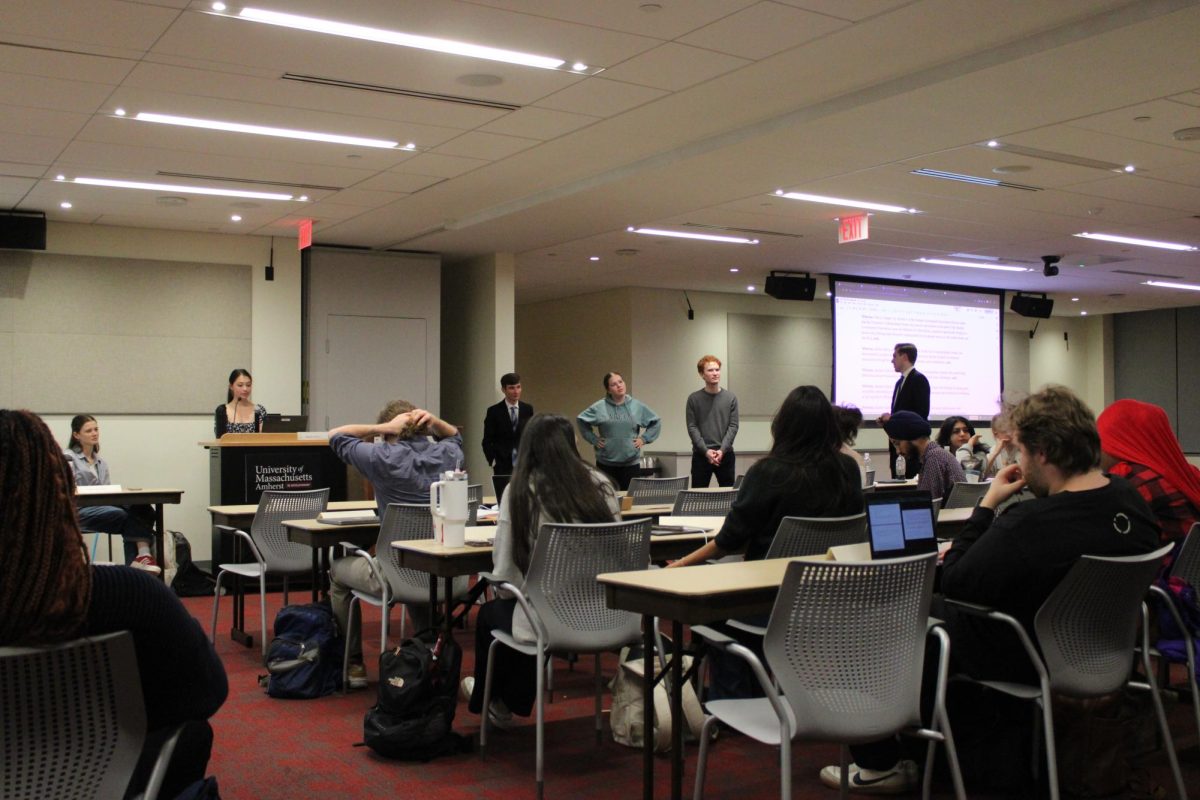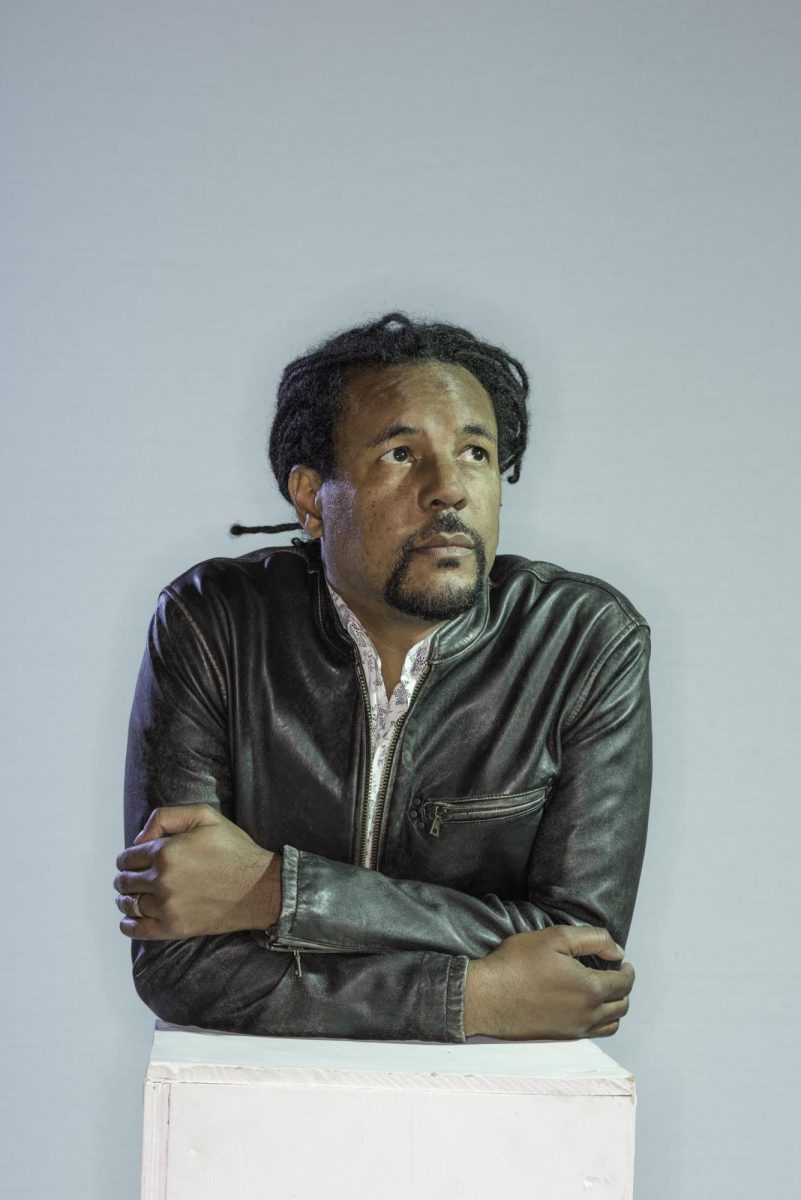
Students and community members gathered Wednesday night in Tobin Hall to listen to activist and social movement expert George Lakey. The talk, titled “A Post-Democratic Party Strategy for a Political Revolution” focused on revolutionizing the United States government.
The talk was organized as a part of Resistance Studies Initiative Fall Speaker Series.
Lakey has a long history with social movements including co-founding Training for Change, an activist group dedicated to nonviolent social change.
His most recent efforts have centered on Earth Quaker Action Team (EQAT), an activist group that was successful in its five-year campaign to have PNC Bank stop financing mountaintop removal of coal in Appalachia.
Lakey began his talk by asking everyone in the room who was frustrated with American politics to raise their hands. Everyone did. He then focused his talk with the question “What might be possible regardless of who our president is next November?”
According to Lakey, the deep polarization that is occurring within American politics today is the exact catalyst for change that the great social movements of the 1930s and 1960s used as their method to create positive policy change for Americans.
“Polarization is an opportunity…opportunity for us to make change. However, it is an art form to make that change,” said Lakey.
The variable that links all these time periods of social unrest is deep economic disparity, according to Lakey.
“There is no politician who has anything in place that will reduce economic inequality…no matter who wins, inequality will grow,” said Lakey.
Lakey cited his work in EQAT as an example of the kind of solidarity that is needed in order to make social change.
The mission statement of EQAT reads, “Earth Quaker Action Team is a grassroots, nonviolent action group including Quakers and people of diverse beliefs, who join with millions of people around the world fighting for a just and sustainable economy.”
During their five-year struggle with PNC Bank over mountaintop coal removal, the Quaker group would travel to different bank locations and demonstrate within the lobbies of the banks. They would gather into a circle in the center of the lobby, and would begin to pray and sing. Lakey said that when they demonstrated in this manner, bank managers would often close the branches of business in order to remove them.
Lakey and other members of EQAT marched 200 miles in protest of the coal removal. It was through this and other demonstrations that influenced PNC Banks to cease their mountaintop coal removal in Appalachia.
After elaborating on his experiences within these activists groups, Lakey outlined the structure of an activist group that can take advantage of the political polarization occurring.
According to Lackey, the creation of a campaign is the first step, as a group has to set its sights on a goal and a specific piece of change they want to work towards.
Then the establishment of what Lakey called “norms of personal empowerment” is key in allowing activists to feel accepted and valued within their group. Lakey identified helpers, advocates, organizers and rebels as the main roles within an organization that activists specialize in.
Next lies the point where many organizations in the past failed, the vision of a group, or what they propose to do differently needs to be established. Without a legitimate model of change, there can be no widespread trust and excitement behind the organization’s campaign.
Lastly, an organization and its activists need training and strategy in order to enact their campaign and gain a stage in which to propose their model of change.
Lakey believes strongly in the ability of activists to make change. “It gives people a chance for the future.” In Lakey’s eyes, it is of the utmost importance that we, as a nation, tackle the economic disparity that has devastated entire cities. “You see that disparity in places like Detroit, somewhere capitalism has deserted.”
For Lackey, the answer lies in the Nordic model of living, which is the economic model in Denmark, Finland, Norway, Iceland and Sweden. It includes a combination of free market capitalism with an extensive welfare state and collective bargaining at a national level.
Lakey believes that if we can incorporate aspects of this into our American economic model, we can reduce economic disparity and pave the way to living in a better society. Lackey has recently written a book on the subject, titled “Viking Economics: How the Scandinavians Got It Right and How We Can, Too.”
Ian Munnelly can be reached at [email protected].


















